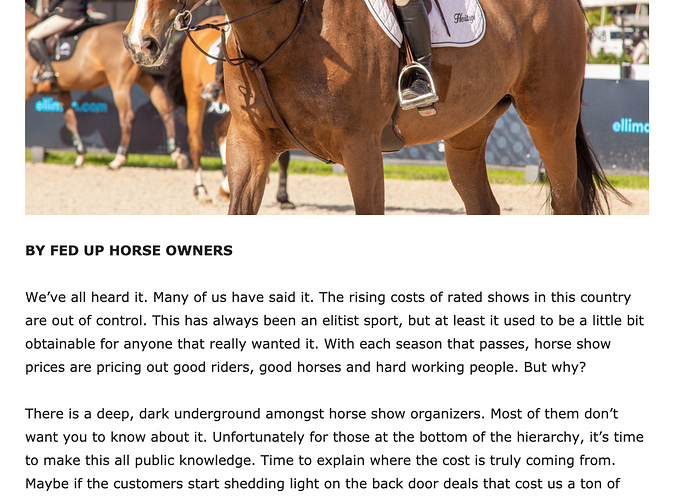That’s true. I doubt TPH has access to either real behind the scenes information or the scope to interview key players and get accurate information. There’s a poster up thread that said a BNT bailed out of an interview because TPH was “unprofessional” in her journalism.
That said, I also recognize that the horse world is made up of a number of small insular communities where its not in the best interests of many players to have full and accurate information on anything. As selling shows is private business information, its not in anyone’s personal interest to reveal their business formula.
But the horse communities also promote all kinds of innacurate or outdated information on health, nutrition, training, etc.
I think part of the problem for TPH trying to present as actual journalism is that it’s clearly a one person show. The quality check is about the same as a blog (ie, none). Even here on COTH there’s been a stream of people saying neither of her articles actually are credible. If she had an editorial team there might be feedback before going to print.
Does it matter? Yes and no. On the “no” side this is a minor one woman monetized blog, honestly, on a subculture that is fairly closed about its inner workings.
On the other hand, after the past decade I am so sick and tired of “journalism” that exaggerates its facts to make a point and reaches dubious conclusions. I know that long ago and far away, I had a tendency that way when I was 19 and wrote for my campus newspaper.
But I have grown deeply allergic to this tendency, even when I agree with the actual position of the articles. And even I, completely removed from the American h/j scene, well aware that there’s way more money loose down there than in Canada, can’t believe that you’d sell a show date for $350, 000. If the problem is that horse showing is a business, that just doesn’t make sense as a business decision for the buyer.

